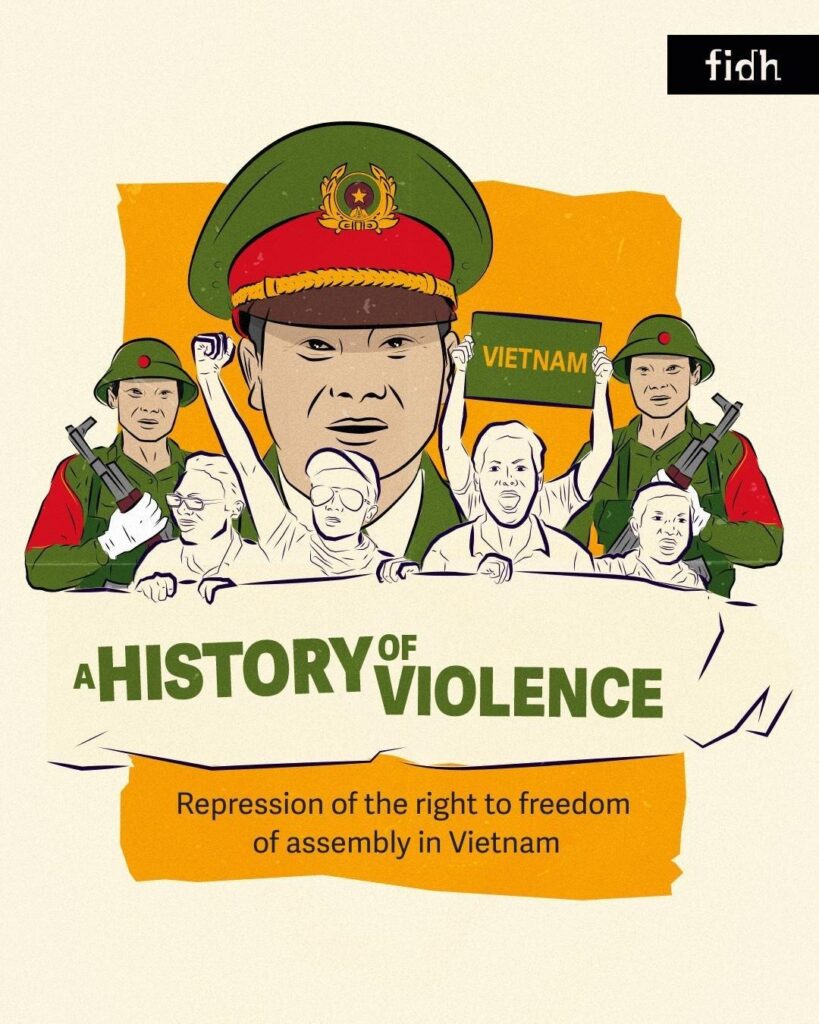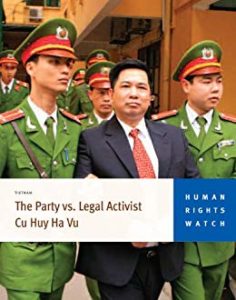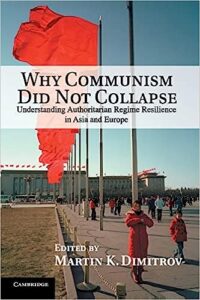
Civil society and human rights groups today issued an open letter to former US President Barack Obama to request assistance in calling for the unconditional release from jail of Obama Foundation scholar Hoang Thi Minh Hong.
Hong is the founder of the Center of Hands-on Action and Networking for Growth and Environment (CHANGE), an organization that advocates for action on climate change, the environment, and wildlife protection, the groups report. CHANGE was a leading organization in the campaign to stop the construction and financing of new coal-fired power plants in Vietnam. Unfortunately, Hong was forced to close CHANGE in October 2022, after being harassed by the government.

For the past three decades, various United Nations (UN) human rights monitoring mechanisms have expressed their concern over the regime’s systematic repression of the right to freedom of peaceful assembly, Penelope Faulkner writes in A History of Violence: Repression of the right to freedom of assembly in Vietnam, a new report for FIDH and the Vietnam Committee on Human Rights (VCHR). Two issues have been repeatedly raised by these UN human rights bodies and experts:
1) the Vietnamese government’s arrest, detention, harassment, intimidation, and the use of excessive force against individuals and groups for their legitimate exercise of the right to freedom of peaceful assembly; and
2) the application of vague and overly broad national security offenses that are inconsistent with the threshold set by international law to prosecute and convict those who exercise such right.

Võ Văn Ái
The signing of two controversial border treaties between Vietnam and China in 1999 and 2000 without any public consultation triggered deep public outrage among Vietnamese from all walks of life, both inside and outside the country, and was followed by a torrent of spoken and written protests, that gave rise to a patriotic civil society movement, the report adds.
To the Vietnamese government’s surprise, the signing of these agreements ignited a flame of passionate patriotism within the population that continues to burn bright today.
Faulkner provides detailed, practical recommendations for the government to bring the country’s laws and practices related to the right to freedom of peaceful assembly into line with international standards in the report, which is dedicated to Vietnamese human rights defender Võ Văn Ái (above), who passed away in January 2023.
 Since 2016, the Vietnamese government has tightened its grip on traditional media, the online sphere, and civil society as part of an effort by the conservative faction within the ruling Communist Party to increase the Party’s control over the state and society, according to a new analysis.
Since 2016, the Vietnamese government has tightened its grip on traditional media, the online sphere, and civil society as part of an effort by the conservative faction within the ruling Communist Party to increase the Party’s control over the state and society, according to a new analysis.
This has been made possible by the Vietnamese state’s improved capability in managing cybersphere and its increased leverage in negotiations with Western partners, say Nguyen Khac Giang and Dien Nguyen An Luong. The weaponization of laws and regulations has become the strategy of choice for Vietnamese authorities, who have become increasingly adept at exploiting economic leverage to strong-arm Big Tech into compliance.
The intensified crackdown has created an increasingly subservient and fear-filled
atmosphere around both mainstream media and cyberspace, unnerving the civil society
community, they write for Singapore’s Yusof Ishak Institute:
 A month before being installed as Vietnam’s president in March, Vo Van Thuong stressed the importance of respecting and listening to critical feedback from the intelligentsia. However, the current conservative trajectory of Vietnamese politics suggests that the public sphere is likely to remain restricted until at least 2026, when the 14th CPV Congress will be held and a new leadership elected. This trend will likely deprive the Vietnamese state of an invaluable online feedback loop.
A month before being installed as Vietnam’s president in March, Vo Van Thuong stressed the importance of respecting and listening to critical feedback from the intelligentsia. However, the current conservative trajectory of Vietnamese politics suggests that the public sphere is likely to remain restricted until at least 2026, when the 14th CPV Congress will be held and a new leadership elected. This trend will likely deprive the Vietnamese state of an invaluable online feedback loop.
For a country that prizes political stability above all else, silencing all avenues for the public to express their grievances could cause instability in the long run, Giang and Luong add. As political scientist Martin Dimitrov aptly noted, regimes should be wary when citizens cease voicing their complaints, as it is indicative of a lack of faith in that state’s legitimacy.







